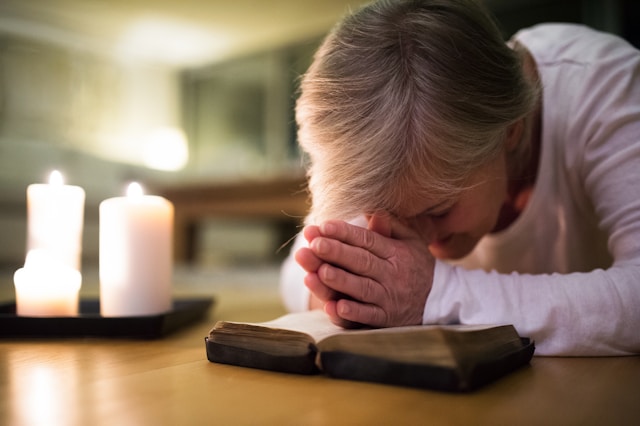When religion plays a big role in the family, it can create misunderstandings that go deeper than just different beliefs.

Adult children who no longer share their parents’ faith often feel judged, while parents might feel rejected, even when no one says those things out loud. The tension isn’t always explosive, but it simmers under conversations, choices, and even silence. These are some of the most common misunderstandings that commonly crop up between religious parents and their non-religious adult kids, and why they can quietly strain even loving relationships.
1. Parents think leaving religion is a rejection of family.

Many religious parents interpret their child’s departure from faith as personal, like it’s not just about belief, but a rejection of the way they were raised. It feels like a dismissal of their values, culture, and even parenting.
The thing is, most adult children aren’t walking away from their families, just from systems that no longer fit. For them, leaving religion can be a deeply personal journey of identity, not rebellion. The love for family is still there, even if the faith isn’t.
2. Adult children think their parents only care about converting them back.

It’s easy for non-religious kids to assume every spiritual conversation is a subtle attempt to “bring them back into the fold.” Even harmless questions can feel like pressure or judgement when this fear is hanging in the air. However, some parents are just trying to stay connected the only way they know how: by sharing what matters most to them. While boundaries matter, assuming every mention of faith is a hidden agenda can block honest connection.
3. Parents assume morality can’t exist outside of religion.

Some parents truly believe that without religious guidance, people will drift into selfishness or aimlessness. It’s hard for them to understand how someone can live an ethical, meaningful life without scripture or church.
The thing is, many non-religious adults build their values on empathy, responsibility, and compassion, just from a different foundation. The desire to be a good person doesn’t disappear without religion. It just looks different, and that doesn’t make it less valid.
4. Adult children assume their parents are close-minded or naive.

When you’ve stepped outside of a belief system, it can be tempting to look back at it with frustration. Adult children may see their parents as stuck or unwilling to question things, even if that’s not really the case. Many religious parents have thought deeply about their beliefs. Their faith isn’t always blind—it’s just rooted in something they experience differently. Assuming they’re unthinking can shut down chances for real dialogue.
5. Parents struggle to separate love from spiritual worry.

When faith teaches that salvation or spiritual truth is on the line, parents often worry for their child’s soul. This concern can come from love, but it sometimes shows up as fear, pressure, or disapproval.
What parents don’t always see is how suffocating that concern can feel. Adult children often need to hear that they’re loved without conditions, not just spiritually worried over. That kind of love creates room for connection, even across belief gaps.
6. Adult children assume they’ll never be fully accepted again.

Once the faith divide becomes clear, non-religious kids often brace themselves for rejection, even if it hasn’t happened outright. They may avoid family events, hide their beliefs, or shut down emotionally to stay safe. Not all parents are rejecting them, though. Some just don’t know how to bridge the gap. If the assumption of judgement is too strong, it can block the possibility of a more accepting relationship than either side expected.
7. Parents expect their adult child to “come around” eventually.

Some parents think leaving faith is a phase or crisis—something that will pass when their child “matures” or faces hardship. It’s not always said out loud, but the expectation lingers in how they engage.
This can feel patronising to adult children who’ve thoughtfully chosen their path. They want to be seen as capable, not wayward. When their decision is dismissed as temporary, it creates a wall of mistrust that makes meaningful dialogue harder.
8. Adult children assume they have to hide their beliefs to keep the peace.

If past conversations have gone badly, many non-religious adults start filtering what they say to avoid tension. They dodge questions, avoid certain topics, and let their parents believe things that aren’t true just to avoid conflict. However, long-term silence can create distance and resentment. Some parents may be more open than their child realises—they just need time, respect, and a bit of grace to adapt. Not every conversation needs to be a debate to be honest.
9. Parents believe faith equals connection.

To some parents, shared faith is the glue that held the family together—through rituals, traditions, and shared values. When their child no longer shares that faith, they may fear losing that emotional and spiritual bond altogether. The thing is, connection can still thrive in new ways. Shared history, respect, and mutual care don’t disappear with belief. It just takes creativity to rebuild a sense of closeness without the usual framework.
10. Adult children assume their parents wouldn’t understand their spiritual independence.

Choosing not to follow a religion doesn’t mean rejecting all forms of spirituality, but it often means exploring it in your own way. Many adult children keep that part of themselves hidden, assuming their parents won’t accept it unless it looks “traditional.”
However, sometimes parents are more open than they seem. They may not fully relate, but they can respect the desire for meaning and reflection, especially if the conversation is rooted in shared values rather than a need for agreement.
11. Parents think talking about faith is always welcome.

For deeply religious parents, faith is central, so they naturally bring it up in conversations, decisions, and advice. They may not realise how often they’re doing it or how heavy it feels for someone who’s stepped away. To an adult child who no longer believes, it can feel like a constant reminder of disconnection or disappointment. Balance helps here. Faith can still be part of the dialogue, but it doesn’t need to dominate every interaction.
12. Adult children forget that their choices can trigger grief.

Even when parents are respectful, they may still feel a quiet sense of loss. When their child leaves the belief system they hoped to pass down, it can feel like mourning something they never got to hold onto. This doesn’t mean adult children should carry guilt, but understanding that grief may be part of the process helps both sides move with more empathy. It’s not about blame, just about acknowledging that change is hard on both ends.
13. Parents assume staying silent means agreement.

Some religious parents avoid bringing up faith once they realise their child’s walked away, hoping silence will help keep the peace. But that silence can be misread as approval or closeness when it’s actually avoidance. Sometimes, a gentle conversation is more healing than pretending the difference doesn’t exist. Openness doesn’t always mean arguing. It can simply mean creating space to be real, even when it’s a little uncomfortable.
14. Adult children underestimate their parents’ capacity to grow.

Just because someone has held a belief for decades doesn’t mean they’re incapable of change, reflection, or curiosity. Adult children sometimes give up too early, assuming their parents are stuck in one way of thinking forever. The thing is, people surprise us. With time and care, parents can soften, shift, and expand. Not every difference has to stay a wall. Some can become doorways, but only if both sides are willing to keep showing up with curiosity and care.




